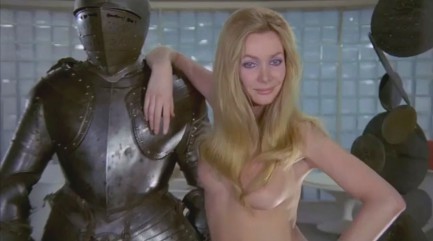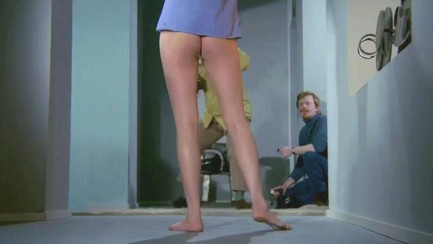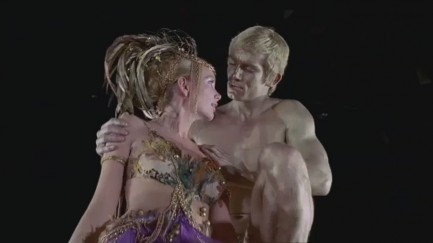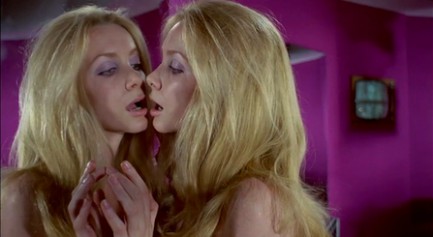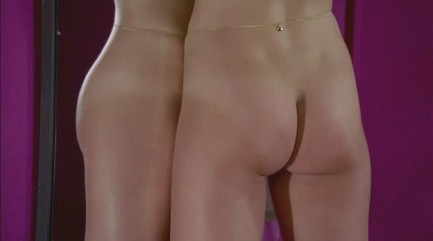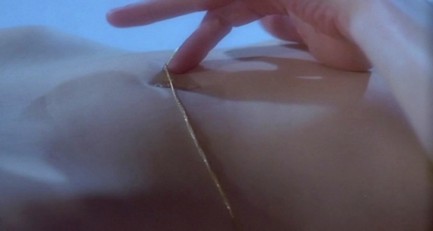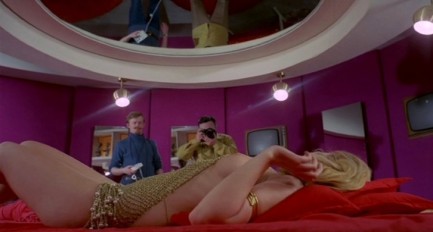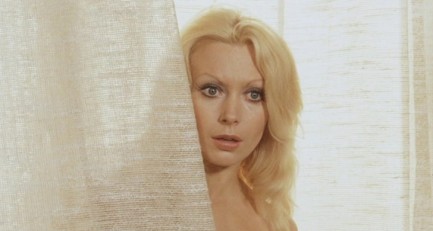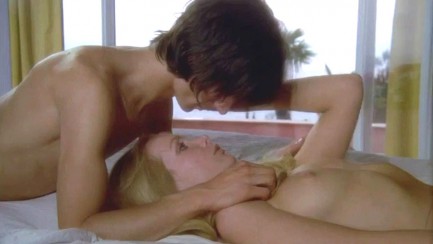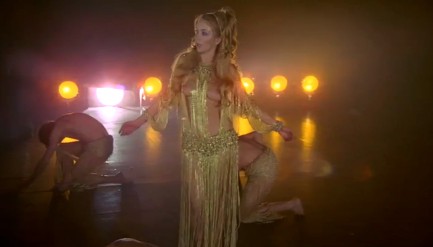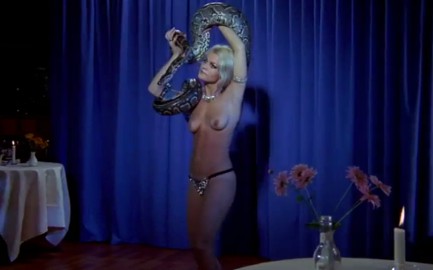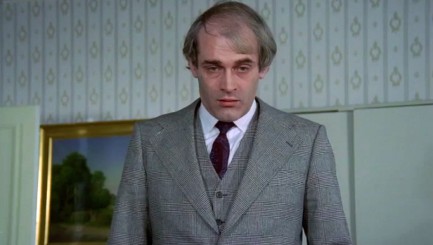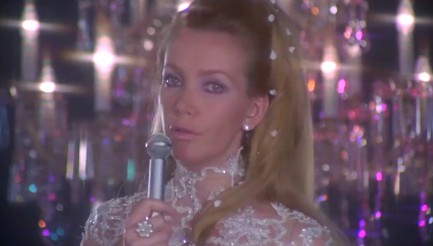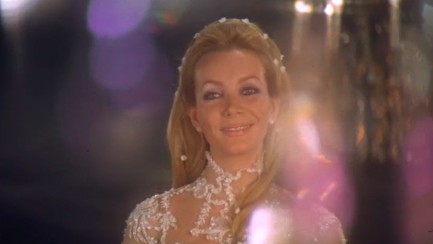| Intl. Notebook | Apr 5 2020 |

It's time for a Man to Man discussion.
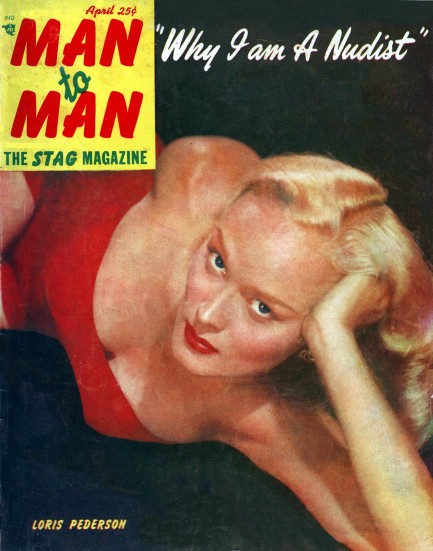
Man to Man magazine was launched in December 1949 by New York City based Volitant Publishing, the same company behind Sir, Laff, and True. And indeed, sir, the magazine's a laff, true enough, not in the sense that it's terribly funny, but in the sense that it's wonderfully distracting. The issue you see here was published this month in 1952, with cover model Loris Pederson, and interior photos of other models, showgirls, and beauty pageant contestants, all striving for celebrity status, but all pretty much lost in the mists of time. Not that we're denigrating them in any way. With celebrity status usually comes financial independence, and the possibility of achieving that is reason enough to grasp for the brass ring, even if, like all the women here, you don't make it. Besides, we all grasp for that ring, one way or another. It's just that in show business, you do it in public.
Along with the many figures in Man to Man, there are also facts. At least, things purported to be facts. For instance, you learn that in 1952 London was the “world's largest paradise of prostitutes.” By definition, that sounds more like an opinion, but whatever. It struck us that only in a men's magazine would you come across the words “paradise” and “prostitutes” in the same sentence about civilization's oldest vice. There's also an article about taxi dancers, women who worked at nightclubs and took payment to dance with men. Apparently the going rate was a dime, and the article asks if the practice was immoral, its insinuation being that the practice groomed women for prostitution. We suspect most customers probably just wanted momentary companionship, but it only takes a minority of bad apples to spawn more vice, and those unpleasant men—like death, elections, and the end of baseball season—always seem to come around no matter what you do.
At least women get their revenge in this issue. An article on supernatural strength features art by Mark Schneider depicting an angry woman slinging a seated guy airborne across a room, chair and all. It's possible she had just learned what's in a typical men's magazine. If the photo had a caption it might be, “For the last time my name's not honey, cutie, baby, or sweetie!” We wouldn't even think of defending men's magazines from accusations of sexism—it's their overriding characteristic. But we will say that they're gold mines for Hollywood anecdotes that have been long forgotten and obscure celeb photos previously unseen online. Since many of our visitors are by now under some sort of quarantine or other, we recommend killing time with a digital stroll through our website, where you'll find many other men's magazine. We'll start you off with this one, this one, and this large group, plus, of course, the forty scans below.
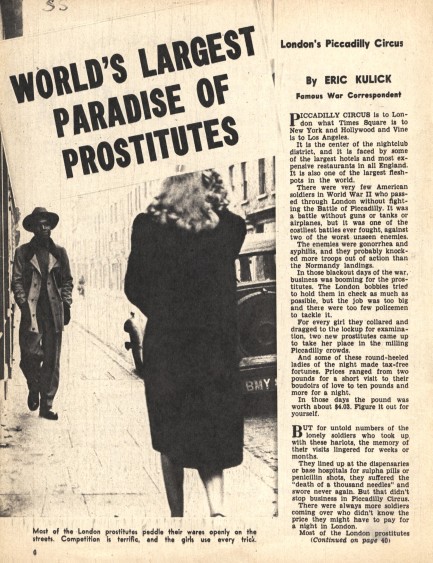
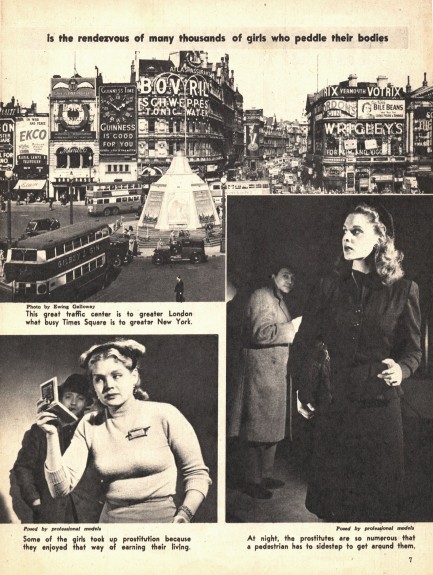
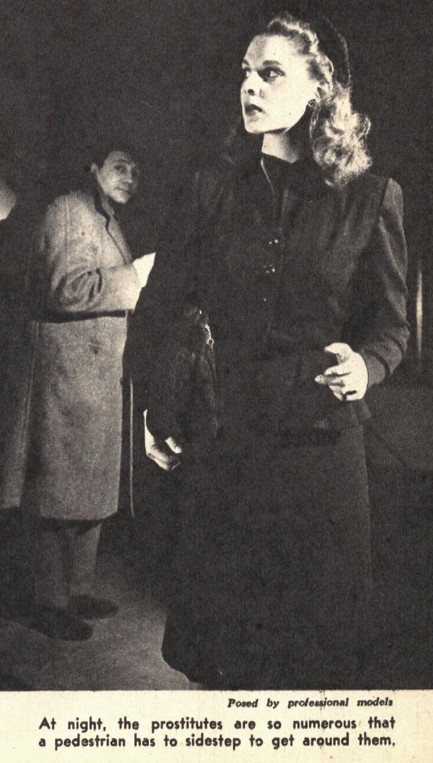
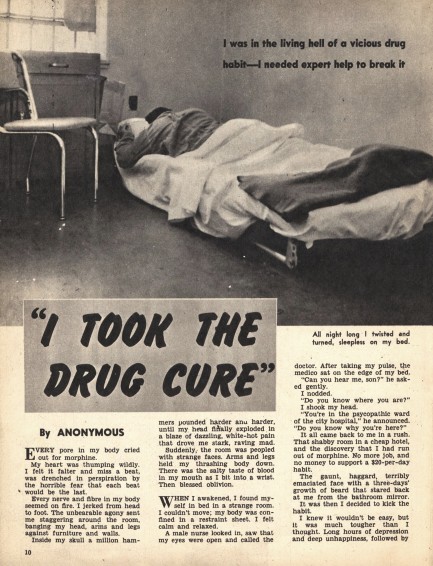
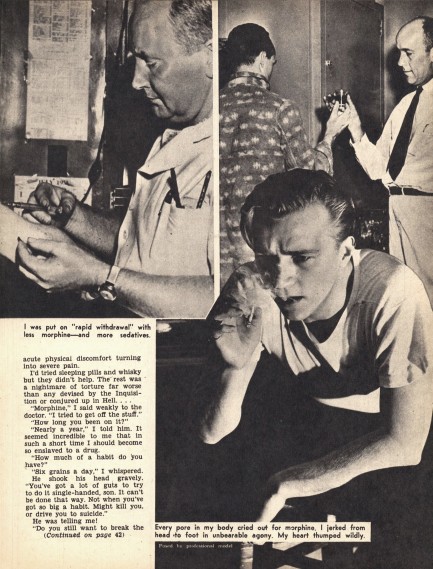
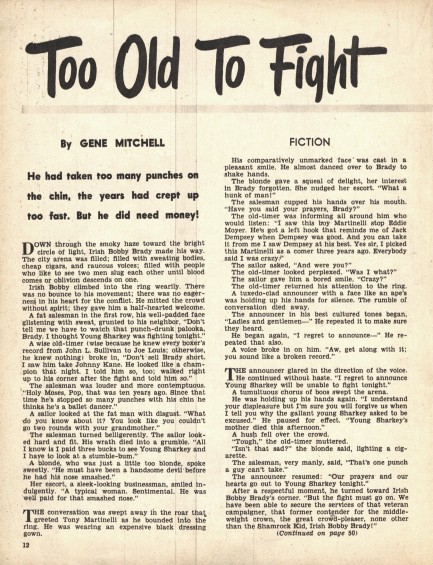
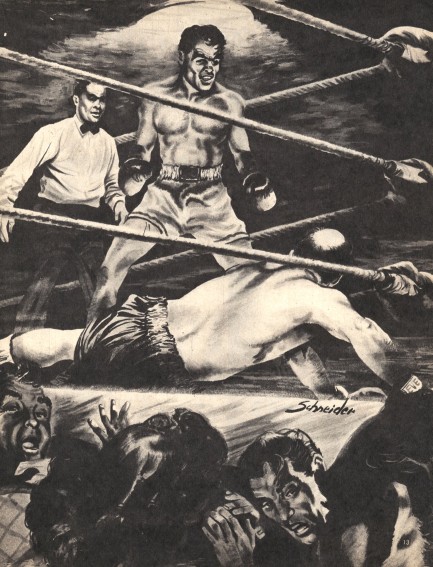
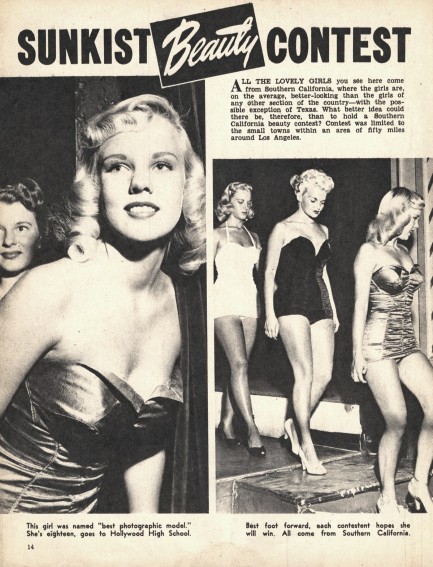
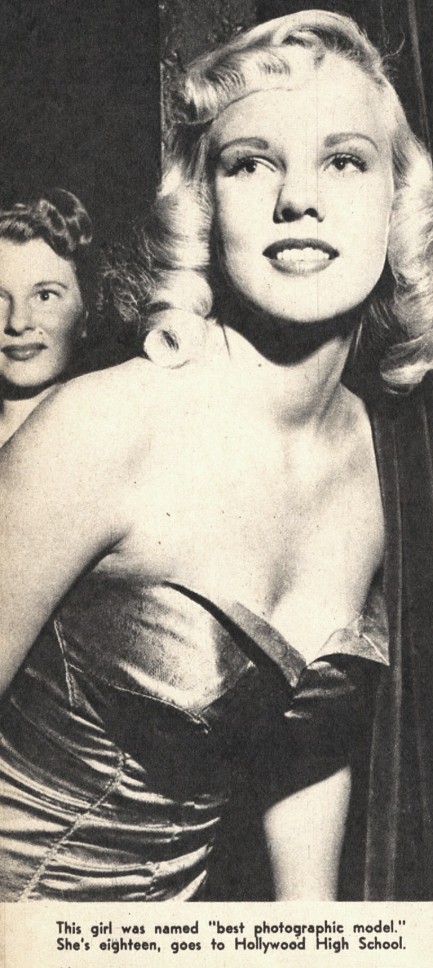
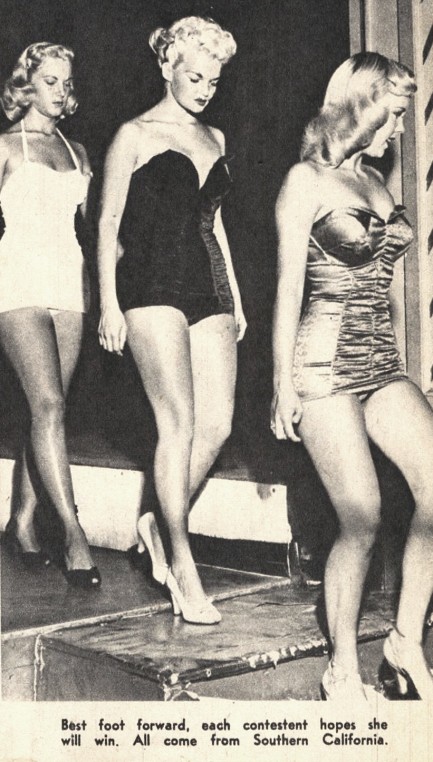
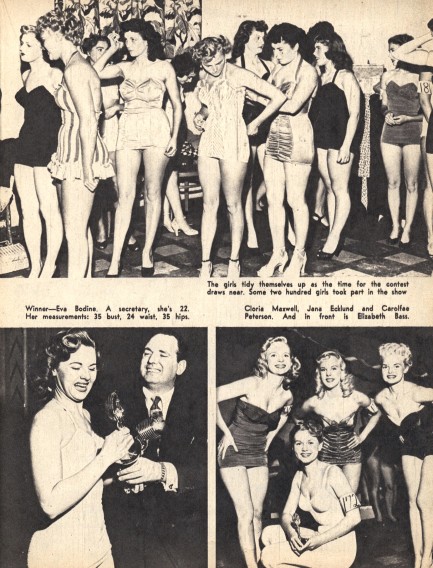
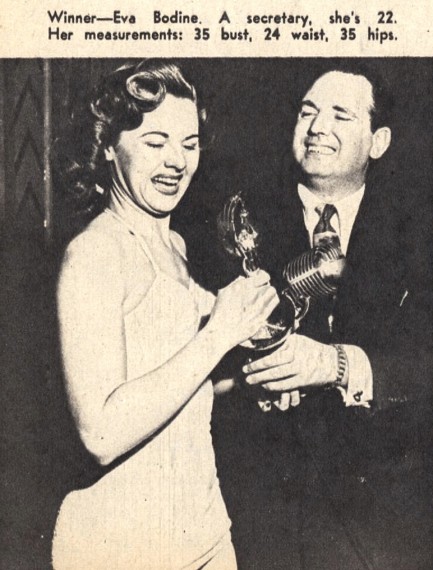
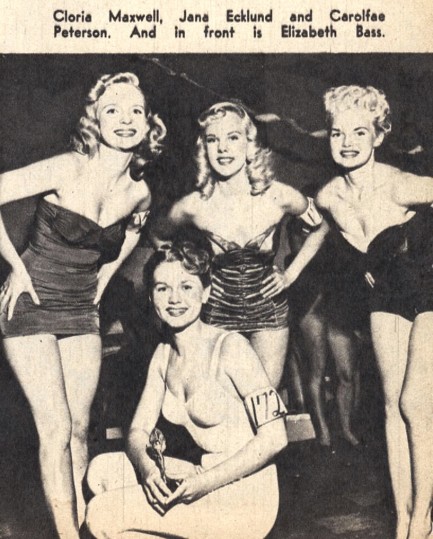
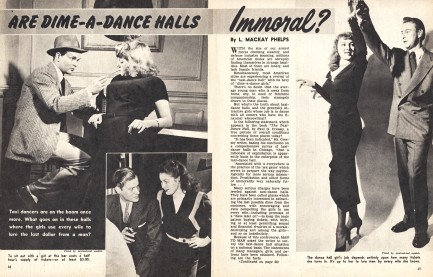
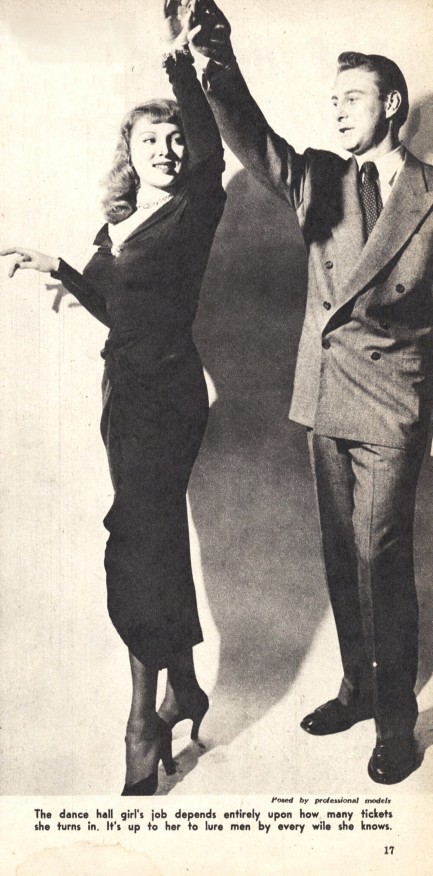
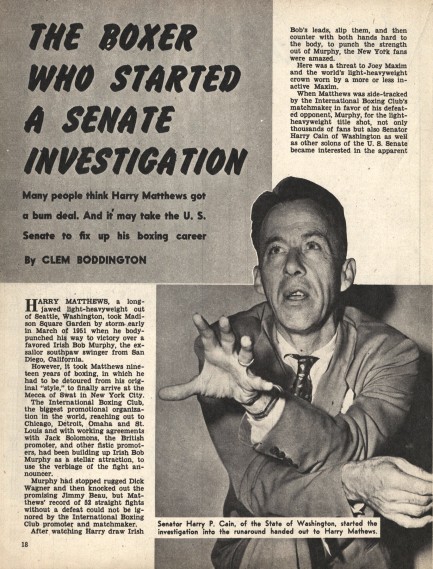
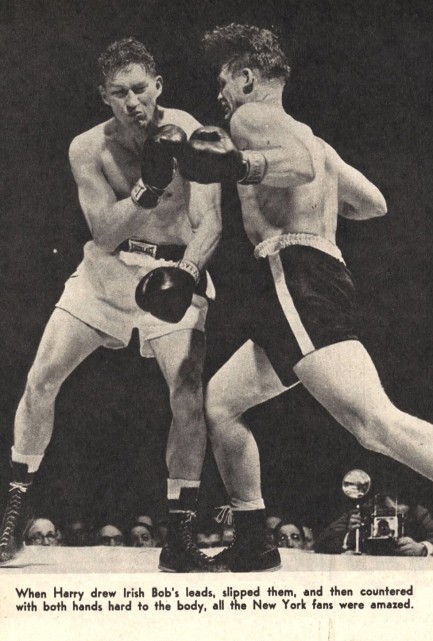
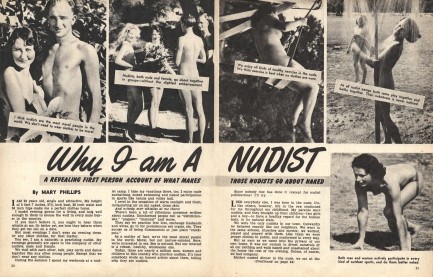
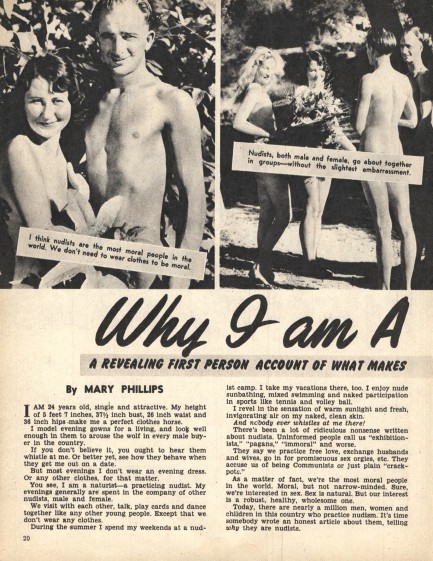
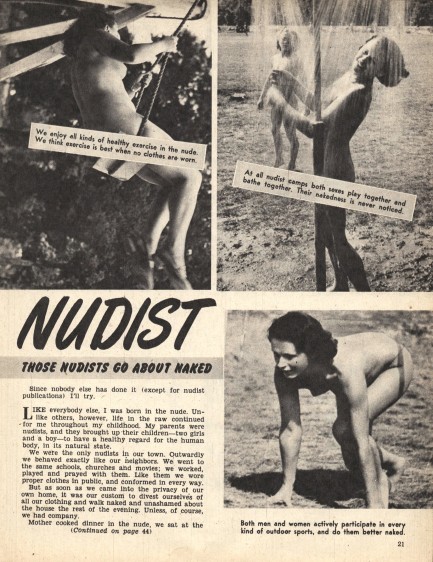
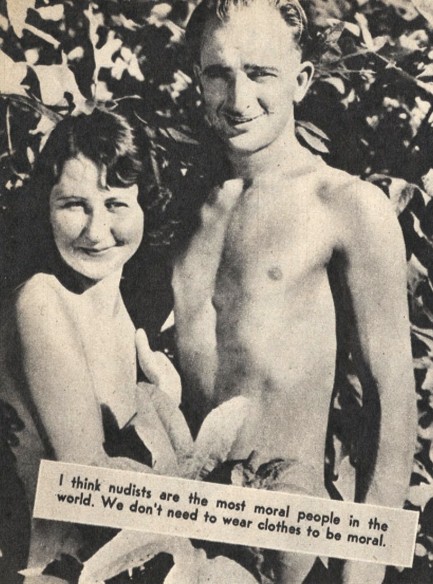
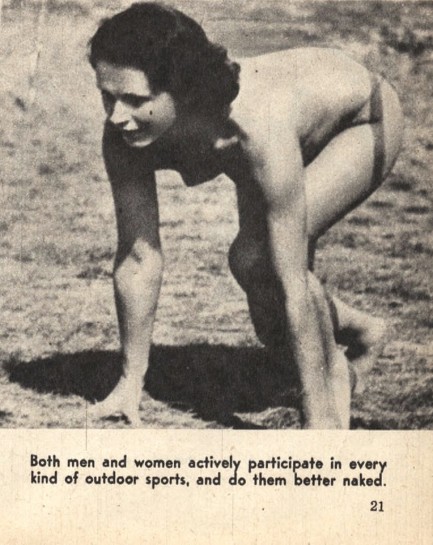
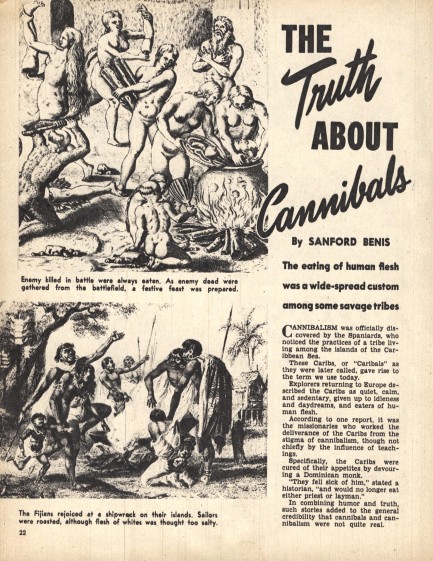
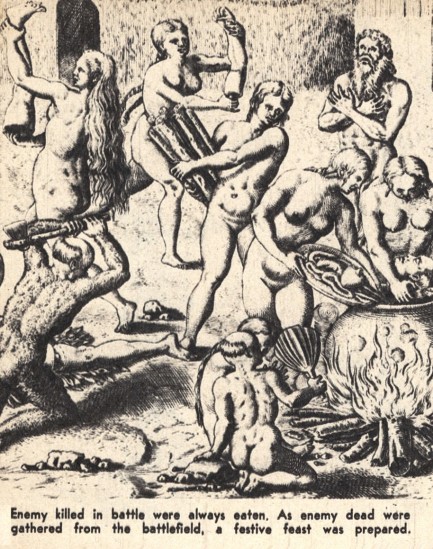
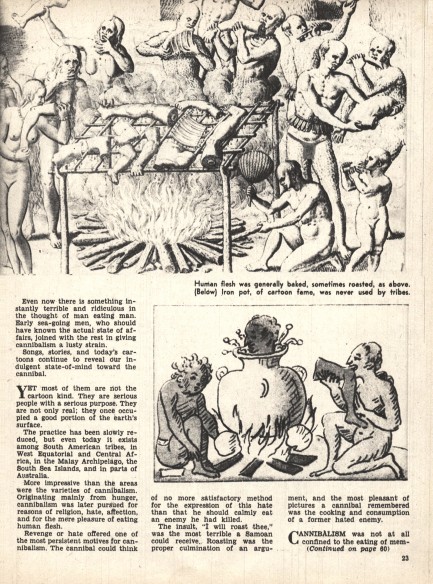
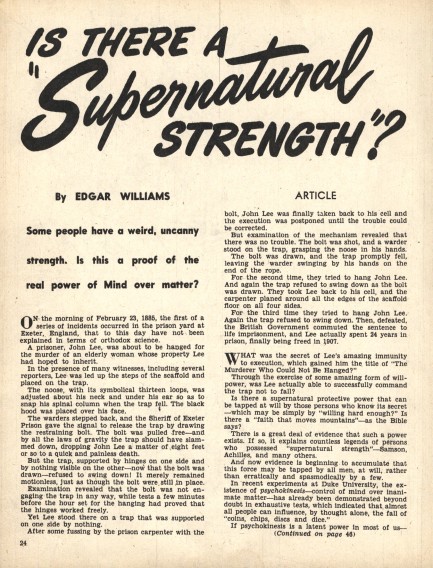
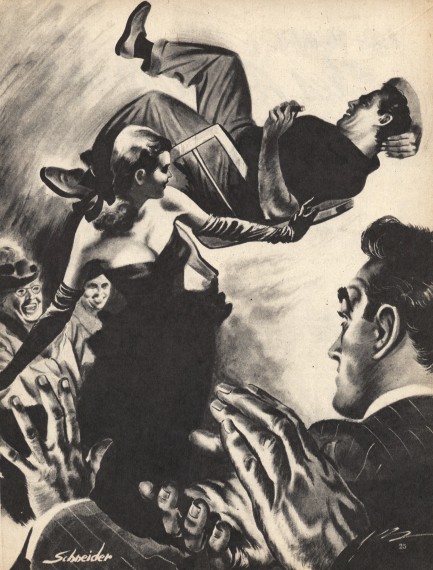
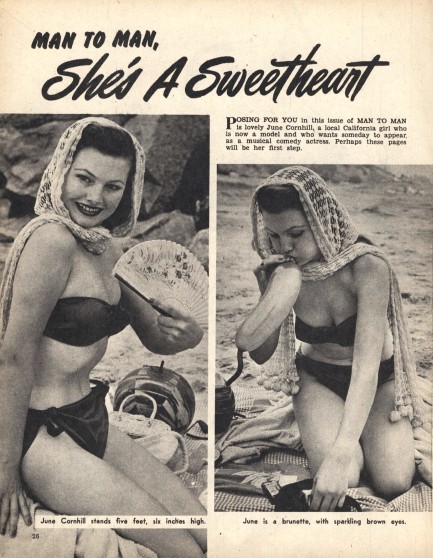
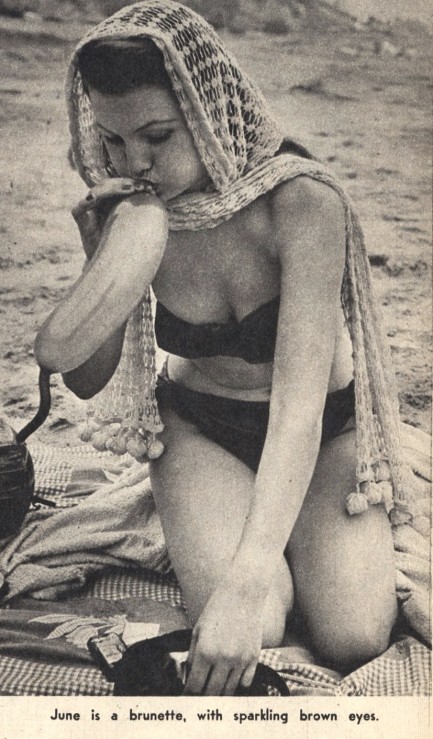
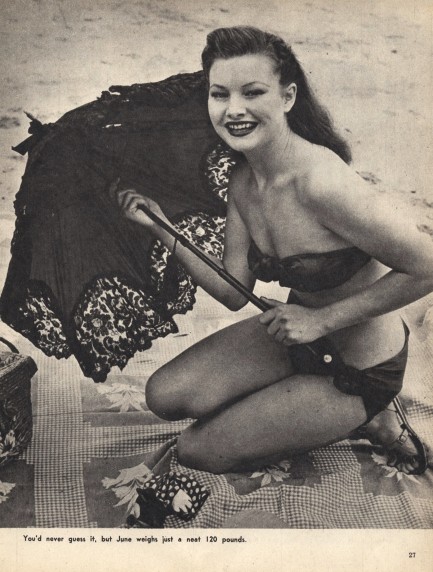
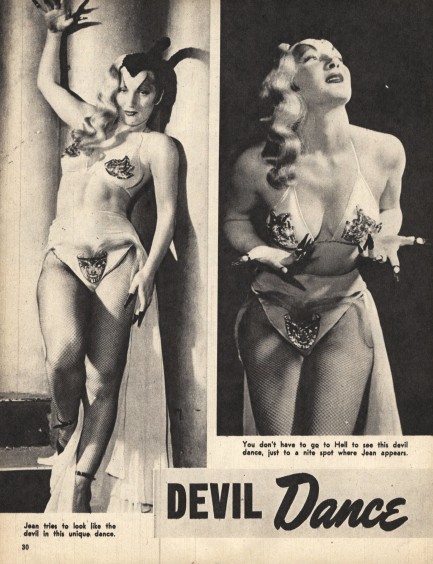
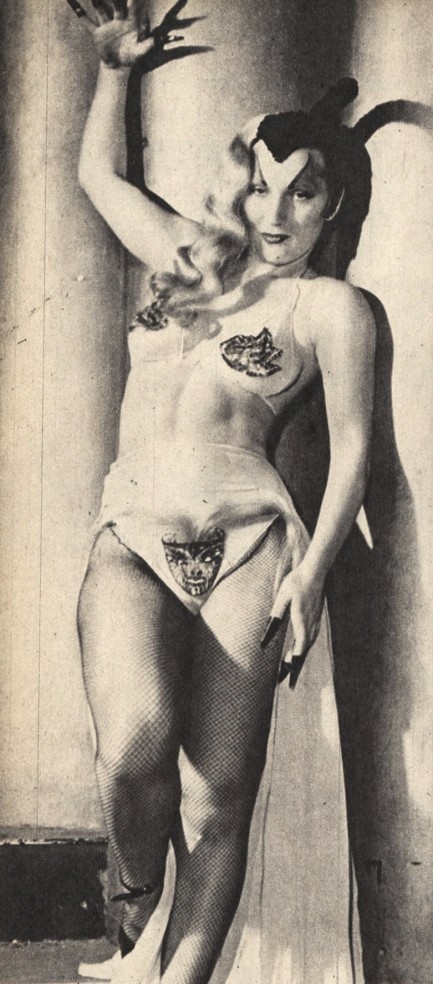
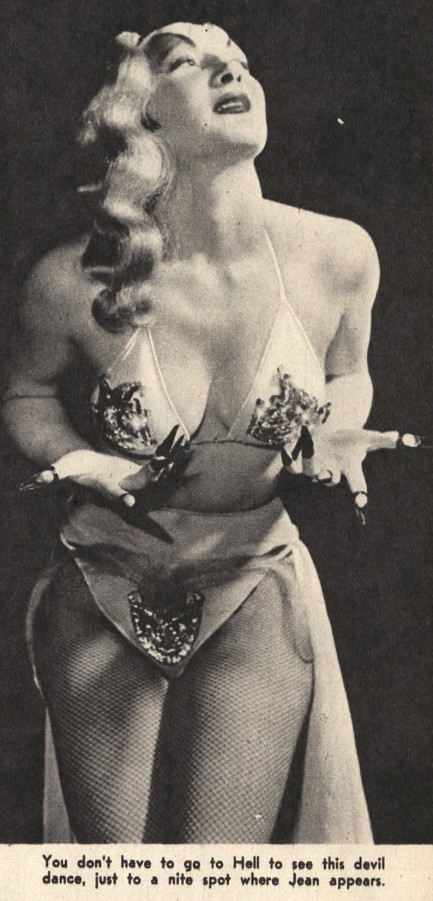
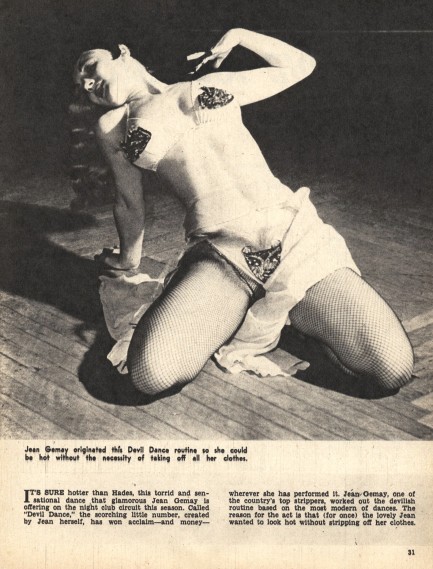
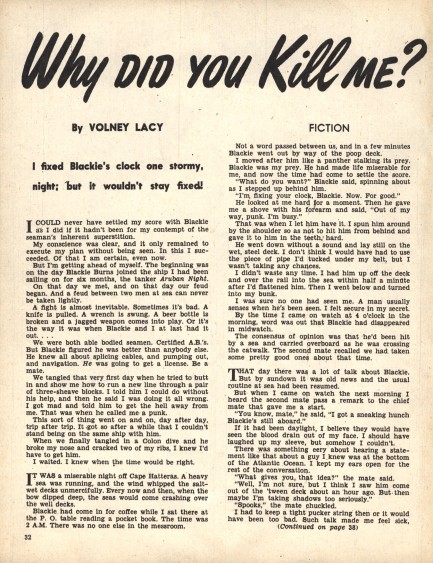
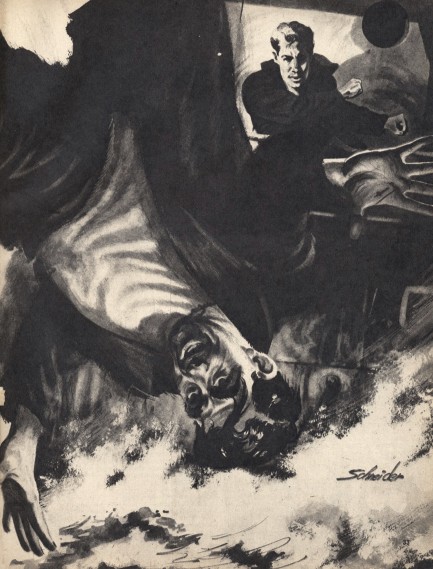
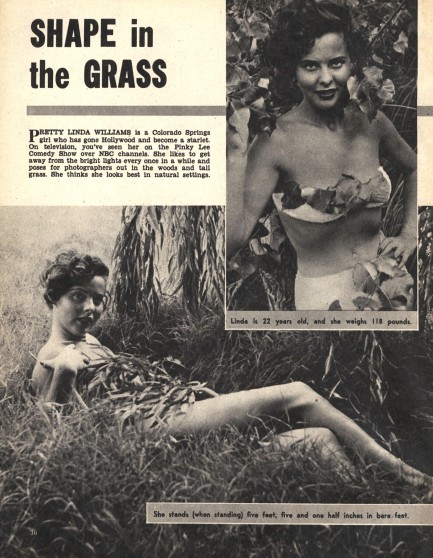
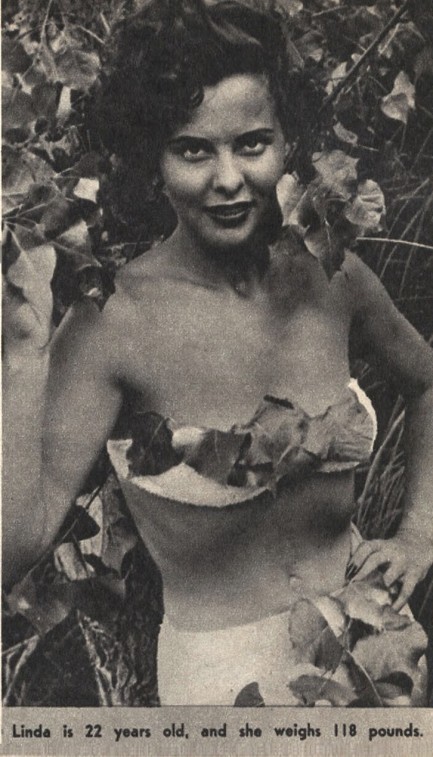
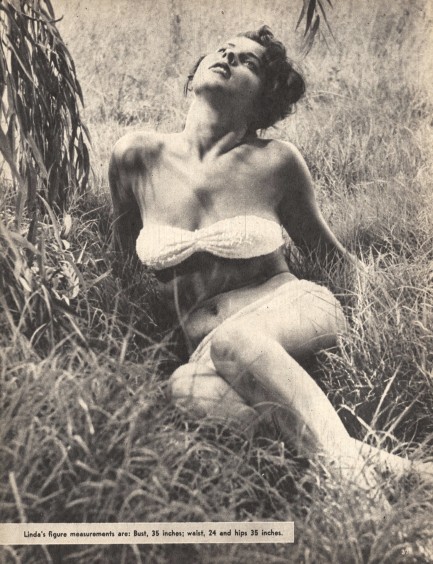
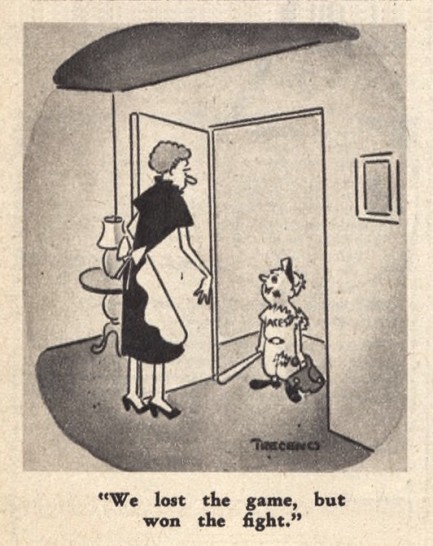

| Vintage Pulp | Jul 7 2015 |

If you’re going to have an empty life, at least make it a beautiful one.
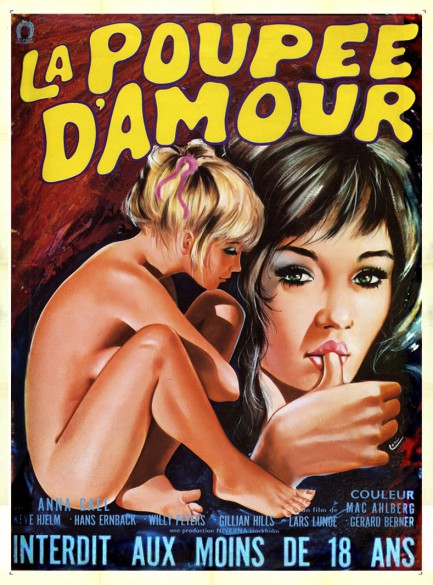
La poupée d’amour played in the U.S. by the silly title Take Me, Love Me, but was originally released in Sweden as Naná, after the Emile Zola novel from which it’s adapted. Director Mac Ahlberg and cinematographer Andréas Winding deserve credit for making the film look fantastic, star Anna Gaël is certainly beautiful, and the cabaret numbers are entertainingly staged, but on the whole we found this one a bit tedious. The movie is basically ’70s arthouse porn and, thanks to some coupling by Gaël’s body double, still qualifies today as adult cinema, but only barely. Zola’s Naná ended up covered with pustules and dying in agony; this movie wouldn’t dare harsh on its own groovy high to that extent, but Gaël does find happiness elusive, as do her lovers. If you watch the movie you may find enjoyment elusive, but in purely visual terms, it’s a real treat. The Belgian promo poster, also a treat, was painted by Loris, an illustrator whose online presence is small, which means we can’t tell you anything about him/her—not even a full name. But he/she did paint other nice promos, and we may dig some of those up later. La poupée d’amour premiered in France/Belgium today in 1970.
